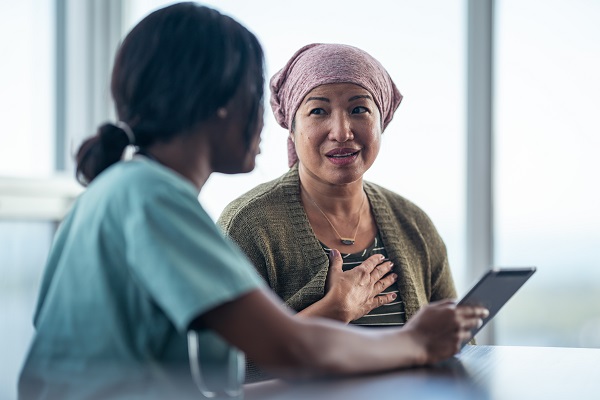By Jaimie Roebuck
There is no pause button for cancer. We have no ability to postpone, hold or reschedule it for a later date. But COVID-19 forced an abrupt and immediate halt to crucial cancer screening, tests and treatments. With the gradual re-opening of health services, we must prioritize resuming cancer care, as further delays and interruptions could ignite another public health crisis.
A survey commissioned in 2020 by the Canadian Cancer Survivor Network revealed that more than half (54 per cent) of Canadian cancer patients, caregivers and those awaiting confirmation of a cancer diagnosis had appointments, tests and treatments postponed and cancelled. Seventy-four per cent said these delays have had a major impact on their mental and emotional health.
“I’m concerned that we’re going to lose the great advances we’ve made in being able to catch cancers very early, or even when they’re pre-cancers. We’re going to lose some of that benefit and may experience what many are referring to as a tsunami of cancer, where people are diagnosed at a later stage than they would have been,” explains Dr. Aisha Lofters, Chair in Implementation Science at The Peter Gilgan Centre for Women’s Cancers at Women’s College Hospital. “There may be significant consequences that trickle down from these delays.”
When the pandemic first began, little was known about COVID-19 and non-essential services, including routine cancer screenings, were put on hold. As restrictions begin to lift, these types of health services must be prioritized. With strict infection prevention and control protocols implemented in healthcare institutions and organizations across the country, the likelihood of virus transmission during a routine cancer screening appointment is very low. It is imperative that people feel comfortable and confident to connect with their primary care providers for screening, testing and treatment appointments.
“It’s our responsibility as physicians to continue reinforcing that it’s safe to come into the hospital or visit a doctor’s office, and then make sure that it truly is safe,” reiterates Dr. Lofters. “We need to resume cancer screening to reap the benefits of catching cancers and pre-cancers early before they cause significant harm. Although we have rightly put a great deal of focus on COVID-19 over the past year, other health problems have not been put on pause.”
A year later, COVID-19 has proved its endurance and longevity, triggering safety concerns around in-person doctor visits. These fears are valid and important, but one of the biggest factors to surviving cancer is early detection. Even a small delay can impact prognosis. As the pandemic persists and health services gradually resume, it is critical that Canadians do not hold off on routine screening appointments.
Health care needs, specifically cancer concerns, should not be put aside because of COVID-19 –they are more important now than ever. Cancer patients who experienced a cancellation, disruption or delay with imaging, biopsies, surgery, radiation or chemotherapy must re-book those appointments. Further delays could lead to severe health implications – the longer cancer goes undetected or untreated, the more advanced and difficult it becomes to manage.
According to The Canadian Cancer Society, cancer is the leading cause of death in our country and is responsible for 30 per cent of all deaths. Based on 2020 estimates, lung, breast, colorectal and prostate cancer are the most commonly diagnosed types of cancer in Canada, accounting for just under half (48 per cent) of all new cancer cases. But screening can save lives and early detection can increase survival rates. It is important to note that five to 10 per cent of cancers are inherited. Whether or not someone has a family history of this disease, it is essential to reduce risk by finding cancer early through routine screening.
COVID-19 triggered a seismic shift, disrupting the way healthcare services are provided in Canada and around the world. But for now, our healthcare system is staying open, and we have to resume proactive and reactive cancer care. Public health messaging must continue to amplify that patient safety during the pandemic is top of mind. Canadians need to feel reassured that coming in for a screening or treatment appointment will not put them in jeopardy, rather, the greater threat to their health would be to wait.
To avoid another major public health crisis, it is crucial that previously postponed or cancelled screening and treatment appointments resume – cancer care for Canadians can no longer come at the cost of COVID-19.
Jaimie Roebuck is a communications specialist at The Peter Gilgan Centre for Women’s Cancers at Women’s College Hospital.




